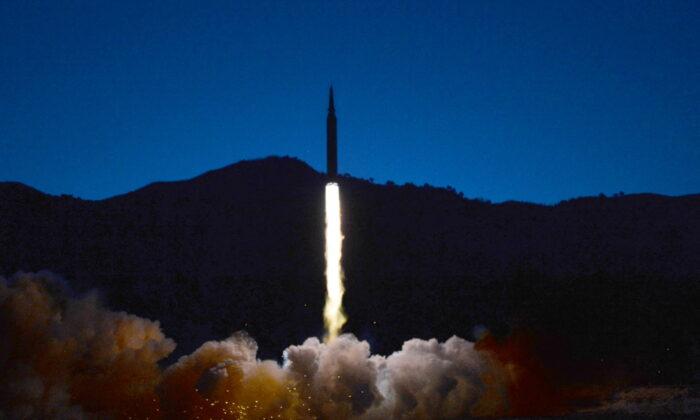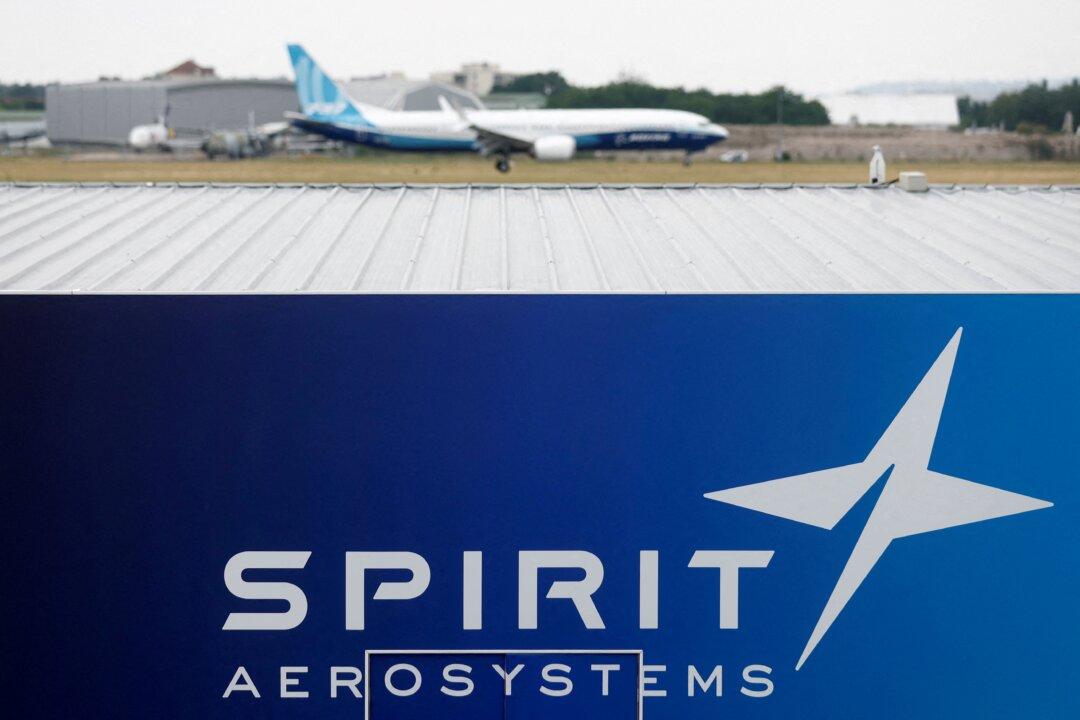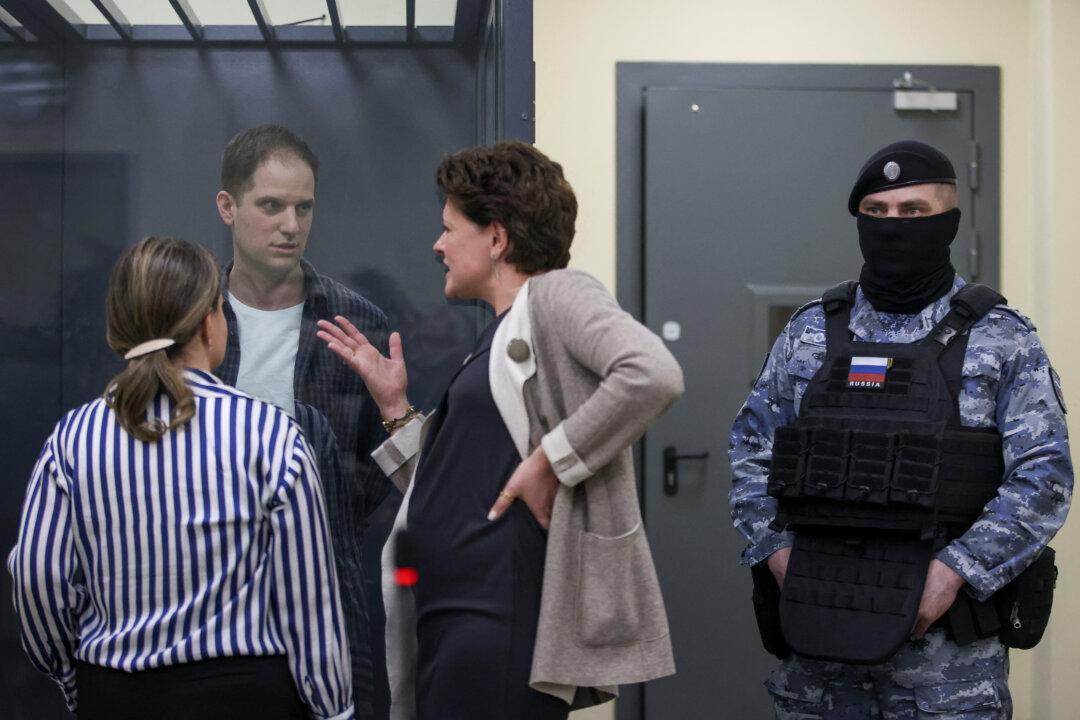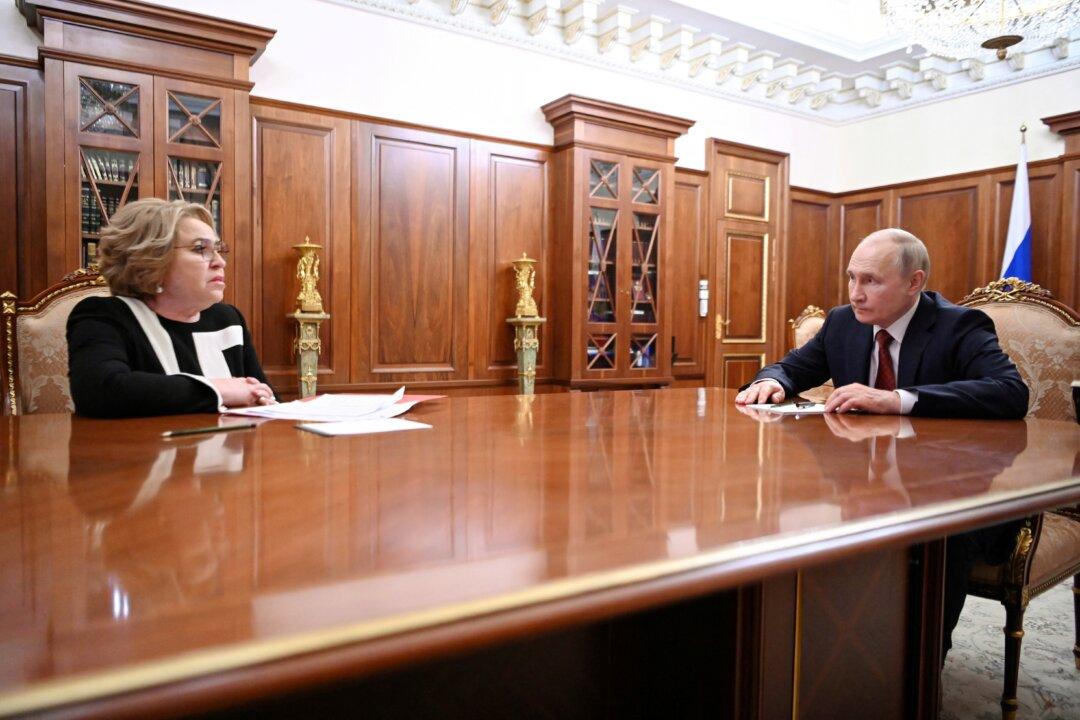WASHINGTON—The United States on Wednesday imposed sanctions on six North Koreans, one Russian, and a Russian firm it said were responsible for procuring goods from Russia and China for North Korea’s weapons programs, an action that follows a series of North Korean missile launches, including two since last week.
The U.S. Treasury said the steps aimed to prevent the advancement of North Korea’s weapons programs and impede its attempts to proliferate weapons technologies.
The sanctions were the first specifically targeting North Korea’s weapons programs imposed by the Biden administration, which has sought unsuccessfully to engage Pyongyang in dialogue to persuade it to give up its nuclear bombs and missiles.
U.S. State Department spokesman Ned Price said Washington remained committed to pursuing diplomacy with North Korea.
“What we have seen in recent days ... only underscores our belief that if we are going to make progress, that we will need to engage in that dialogue,” he told a regular news briefing.
The Treasury Department said the sanctions followed six North Korean ballistic missile launches since September, each of which violated U.N. Security Council resolutions.
Under Secretary of the Treasury for Terrorism and Financial Intelligence Brian Nelson said the moves targeted North Korea’s “continued use of overseas representatives to illegally procure goods for weapons.”
North Korea’s latest launches were “further evidence that it continues to advance prohibited programs despite the international community’s calls for diplomacy and denuclearization,” Nelson said in a statement.
It said the State Department had designated Russia-based North Korean Choe Myong Hyon, Russian national Roman Anatolyevich Alara, and the Russian firm Parsek LLC for “activities or transactions that have materially contributed to the proliferation of weapons of mass destruction or their means of delivery.”
It said Choe Myong Hyon, a Vladivostok-based representative of North Korea’s Second Academy of Natural Sciences (SANS), had worked to procure telecommunications-related equipment from Russia.
Four China-based North Korean representatives of SANS-subordinate organizations—Sim Kwang Sok, Kim Song Hun, Kang Chol Hak and Pyon Kwang Chol—and one other North Korean, O Yong Ho, were also targeted.
Sim Kwang Sok, based in Dalian, had worked to procure steel alloys and Kim Song Hun, who was based in Shenyang, software and chemicals, Treasury said.
North Korea’s U.N. mission, Russia and China’s embassies in Washington, and the Russian firm did not respond to requests for comment.
North Korean media said leader Kim Jong Un observed the test of a hypersonic missile on Tuesday, the second in less than a week after he vowed in a New Year speech to bolster the military with cutting-edge technology.
Tuesday’s test came hours after the U.S. mission to the United Nations, joined by Albania, France, Ireland, Japan, and the United Kingdom, condemned last week’s launch and called on U.N. states to fulfill sanctions obligations.
U.N. resolutions ban North Korean ballistic missile and nuclear tests and impose sanctions.
Anthony Ruggiero, a sanctions expert in the former Trump administration, called the new sanctions “a good start.”
However, he said the Biden administration had allowed a reversal of sanctions pressure and added: “Biden needs to continue the designations to increase the pressure on the Kim regime.”
Price did not respond when asked why no Chinese individuals or entities were targeted, or specifically when asked if China and Russia were doing enough to enforce sanctions, but stressed the importance of all U.N. states doing so, while adding: “Obviously we’ve not see all of that.”
Wednesday’s actions freeze any U.S.-related assets of those targeted and prohibit all dealings with them.






Friends Read Free